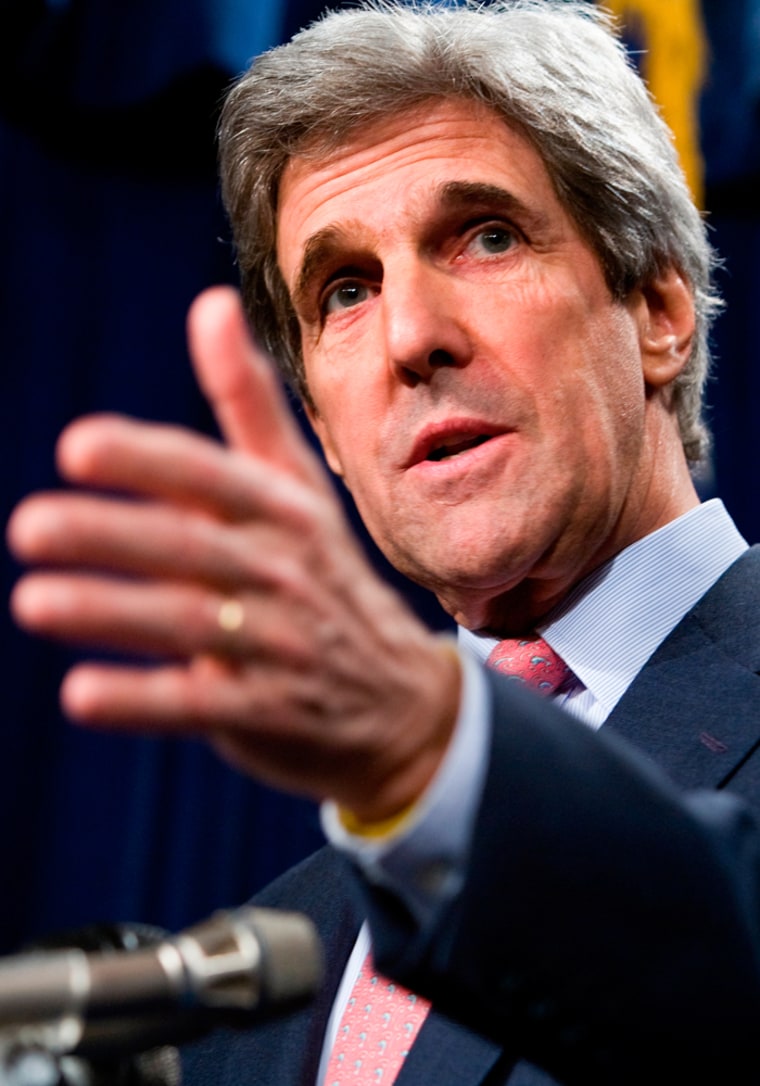The United States was for slavery "before we were against it."
That history lesson was brought to you by Sen. John Kerry, who argues that if an entire nation can be indecisive about human bondage, voters surely should forgive a political leader who changes his or her mind.
"Decisiveness wrongly applied can create a lot of pain for the nation and big, big historic mistakes," says the 2004 Democratic presidential nominee labeled a "flip-flopper" by President Bush.
Four years after his unsuccessful run, Kerry sat down with Associated Press reporters for more than 30 minutes to discuss the history and practice of decisiveness in U.S. politics. The irony was not lost on the Massachusetts senator, who mixed thoughtful opinions on the topic with jabs at Bush and a self-effacing reference to his reputation as a malleable man.
In 2003, Kerry supported $87 billion in emergency money for troops and reconstruction in Iraq and Afghanistan, but the bill was conditioned on repealing much of Bush's tax cuts. It failed. On the critical, up-or-down vote on the $87 billion tab, Kerry voted no. His awkward explanation — "I actually did vote for the $87 billion before I voted against it" — played into the wishy-washy caricature Bush hoped to create.
"In a president, people are looking for strength — strength of character, strength of purpose, strength of belief," Kerry told the AP.
The sentiment is strongest in anxious times like these. "I think it's a plea above all for a strong response to their plight," he said, adding that people look to strong leaders and say, "Help me. Make a difference. Change things."
But Kerry said the political system has trivialized decisiveness "in regrettable ways that don't do justice to the complexity of the choices that we face."
Many voters associate decisiveness with fast and unyielding decision-making, which Kerry said is only half right.
"There are different kinds of decisiveness," he explained. "There can be decisiveness in deciding that something ought to be approached slowly, or you can be decisive in deciding there is an emergency and you have to respond urgently."
An example of the latter is deciding to kill or be killed, a choice Kerry faced during the Vietnam War. An example of the former is how President Kennedy responded to the Cuban missile crisis, opting to respond with deliberation to the Soviet threat.
"He was decisive about not moving too quickly on Cuba and taking the time to work the back channels, which has been historically ratified as one of the great presidential nuances," Kerry said.
Nuance is not a word Americans associate with strong leadership. But Kerry called it the essence of the presidency. For example, he said, U.S. policy on China and Taiwan is parsed to make sure Taiwan isn't encouraged to declare its independence and China isn't tempted to invade.
"That ambiguity is, in effect, the policy, with a purpose," Kerry said.
Kerry noted that Ronald Reagan wasn't criticized for condemning the Soviets' so-called evil empire while turning a blind eye toward other Communist regimes.
And then there's the matter of the U.S. Constitution and slavery, a blatant bit of flip-floppery.
"Slavery was written into the Constitution before it was written out," Kerry said with a wry grin, before paraphrasing his infamous remark on war funding. "So America was for it before we were against it."
